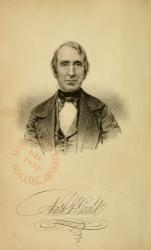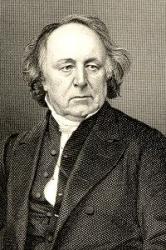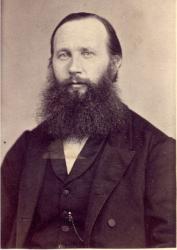Planning worship?
Check out our sister site, ZeteoSearch.org,
for 20+ additional resources related to your search.
- |
User Links
Person Results
Anonymous
Meter: 8.6.8.8.6 Author of "Lo! Now the Time Accepted Peals" in The Cyber Hymnal In some hymnals, the editors noted that a hymn's author is unknown to them, and so this artificial "person" entry is used to reflect that fact. Obviously, the hymns attributed to "Author Unknown" "Unknown" or "Anonymous" could have been written by many people over a span of many centuries.
Anonymous
Erik Routley
1917 - 1982 Meter: 8.6.8.8.6 Composer of "CHALFONT PARK" in Rejoice in the Lord
Erik Routley
John Morison
1750 - 1798 Person Name: J. Morison, 1749-98 Meter: 8.6.8.8.6 Author of "The People That in Darkness Sat" in Evangelical Lutheran Hymnary Morison, John, D.D., was born in Aberdeenshire in 1749. He studied at the University of Aberdeen (King's College), where he graduated M.A. in 1771. In 1780 he became parish minister of Canisbay, Caithness. He received the degree of D.D. from the University of Edinburgh in 1792. He died at Canisbay, June 12, 1798. He was one of the members added on May 26, 1781, to the Committee appointed by the General Assembly of 1775 to revise the Translations and Paraphrases of 1745. To him are ascribed Nos. 19, 21, 29, 30 and 35, in the 1781 collection, and he is said to have been joint author with John Logan of Nos. 27 and 28. [Rev. James Mearns, M.A.]
--John Julian, Dictionary of Hymnology (1907)
John Morison
Christopher M. Idle
b. 1938 Meter: 8.6.8.8.6 Author of "No Fear of God Before the Eyes" in Scripture Song Database Christopher Martin Idle (b. Bromley, Kent, England, 1938) was educated at Elthan College, St. Peter's College, Oxford, and Clifton Theological College in Bristol, and was ordained in the Church of England. He served churches in Barrow-in-Furness, Cumbria; London; and Oakley, Suffolk; and recently returned to London, where he is involved in various hymnal projects. A prolific author of articles on the Christian's public responsibilities, Idle has also published The Lion Book of Favorite Hymns (1980) and at least one hundred of his own hymns and biblical paraphrases. Some of his texts first appeared in hymnals published by the Jubilate Group, with which he is associated. He was also editor of Anglican Praise (1987). In 1998 Hope Publishing released Light Upon the River, a collection of 279 of his psalm and hymn texts, along with suggested tunes, scripture references, and commentary.
Bert Polman
Christopher M. Idle
Robert Wilfrid Callin
1886 - 1951 Person Name: Robert Wilfred Callin, 1886-1951 Meter: 8.6.8.8.6 Author of "O Lord of every lovely thing" in The Methodist Hymn-Book with Tunes
Robert Wilfrid Callin
Samuel Wesley

1691 - 1739 Person Name: Samuel Sebastian Wesley Meter: 8.6.8.8.6 Composer of "ENGEDI" in The Cyber Hymnal Samuel Wesley, M.A., the younger, was the eldest child of Samuel and Susanna Wesley, and was born in or near London in 1691. He received his early education from his mother, who always took a special interest in him as her firstborn. In 1704 he went to Westminster School, where he was elected King's Scholar in 1707. Westminster had, under the mastership of Dr. Busby for 55 years, attained the highest reputation for scholarship, and Samuel Wesley, as a classical scholar, was not unworthy of his school. In 1709, Dr. Spratt, Bishop of Rochester, patronised the young scholar, and frequently invited him to Bromley. In 1711 he went with a Westminster studentship to Christ Church, Oxford, and having taken his degree, returned to Westminster as an Usher. He then received Holy Orders and became an intimate friend of Bishop Atterbury, who was then Dean of Westminster. His intimacy with this prelate was a bar to his advancement, and he was bitterly disappointed at not being appointed undermaster at Westminster when that post was vacant. But he was faithful to his friend in his adversity, and the banished prelate warmly appreciated his attachment. In 1732 he was invited, without solicitation, to accept the headmastership of the Free School at Tiverton, and here he spent the remainder of his life. He strongly disapproved of John and Charles Wesley's proceedings; but though the brothers expressed their opinions to one another with characteristic frankness, the disagreement did not cause any interruption in the friendly relations between them.
Samuel Wesley was universally acknowledged to be an honest, conscientious and deeply religious man. He was a most uncompromising High Churchman both in the political and the theological sense of that term; and there is no doubt that he was the mainstay of the Wesley family at Epworth. His kindness to his father and mother was unbounded, and he acted like a father to his younger brothers and sisters. He also took a great interest in works of charity, and was one of the first promoters of the Westminster Infirmary. He died at Tiverton in the 49th year of his age, Nov. 6, 1739. His epitaph in Tiverton Churchyard does not exaggerate his merits, when it describes him as—
"a man for his uncommon wit and learning, For the benevolence of his temper, and simplicity of manner, Deservedly loved and esteemed by all: An excellent Preacher; But whose best sermon Was the constant example of an edifying life: So continually and zealously employed In acts of beneficence and charity, That he truly followed His blessed Master's example In going about doing good; Of such scrupulous integrity, That he declined occasions of advancement in the world, Through fear of being involved in dangerous compliances; And avoided the usual ways to preferment As studiously as many others seek them."
Samuel Wesley published in 1736 A Collection of Poems on several occasions, some of which are full of a rather coarse humour, but all of a good moral and religious tendency. This work was reprinted in 1743, and again by W. Nichols in 1862. Dr. Adam Clarke specifies eight hymns of S. Wesley's composition which were in use among the Methodists of that time (1823). The Wesleyan Hymn Book of the present day contains five, the best-known of which is "The Lord of Sabbath let us praise."
Six of his hymns are in common use, and are annotated as follows:—
1. From whence these dire portents around.
2. Hail, Father, Whose creating call.
3. Hail, God the Son in glory crowned.
4. Hail, Holy Ghost, Jehovah, Third.
5. The Lord of Sabbath, let ns praise.
6. The morning flowers display their sweets.
-- Excerpts from John Julian, Dictionary of Hymnology (1907)
Samuel Wesley
Nathaniel D. Gould

1781 - 1864 Person Name: Nathaniel Duren Gould Meter: 8.6.8.8.6 Composer of "WOODLAND" in The Cyber Hymnal Nathaniel Duren Gould 1781-1864. Born in Bedford, MA, into the Duren family, He was musically inclined and attended a singing school when young. He was also a master and teacher of penmanship and engraving. As a conservative music reformer he opened a singing school in 1799. He taught mostly Psalmody singing. He married Sally Andrews Prichard in 1801, and they had eight children: Nathaniel, Augustus, Charles, Mary Ann, (2 unnamed infants that died), Elizabeth and Sarah. He also formed the New Ipswitch military band in 1804 He was conductor of the Middlesex MA Musical Society in 1805. He took the name Gould in 1806 to qualify for an inheritance from an uncle. He taught music in NH and MA in some 115 singing schools over 50+ years and had more than 50,000 students. He also compiled and published music. He authored a number of books, one being “History of church music in America” (1853) about early singing schools. He noted traits and temperaments of many singers, some not really performing for the glory of God. He died in Boston, MA.
John Perry
Nathaniel D. Gould
August Crull

1845 - 1923 Person Name: A. Crull, 1845-1923 Meter: 8.6.8.8.6 Translator of "Praise God the Lord, Ye Sons of Men" in Evangelical Lutheran Hymnary August Crull was born January 27, 1845 in Rostock, Germany, where his father, Hofrat Crull, was a lawyer. He was educated at the Gymnasium in Rostock, and at Concordia College in St. Louis and Fort Wayne where he graduated in 1862. His father died soon after he began studying at the Gymnasium. His mother then married Albert Friedrich Hoppe, who later became the editor of the St. Louis edition of Luther's Works. In 1865, Crull graduated from Concordia Seminary in St. Louis. He became assistant pastor at Trinity Church in Milwaukee and also served as Director of the Lutheran High School. Later he was pastor of the Lutheran Church in Grand Rapids, Michigan. From 1873 to 1915, he was professor of the German language and literature at Concordia College in Fort Wayne, Indiana. After his retirement he returned to Milwaukee, where he died on February 17, 1923. His first wife and three of his four children preceded him in death. His second wife, Katharina John, survived him by many years.
Crull was a distinguished hymnologist and translated many hymns that appeared in several Lutheran hymnals. He published a German grammar and edited a book of devotions, Das walte Gott, based on the writings of Dr. C.F.W. Walther. His project of translating Lutheran hymns so they would be accessible to American Lutherans bore its first fruits when he published a book of English hymns at the Norwegian Synod publishers in Decorah, in 1877.
--www.hymnsandcarolsofchristmas.com/
August Crull
Thomas Binney

1798 - 1874 Person Name: Thomas Binney, 1798-1874 Meter: 8.6.8.8.6 Author of "Eternal Light! Eternal Light" in Common Praise Binney, Thomas, D.D., b. at Newcastle-on-Tyne, in 1798, and educated at Wymondley College, Hertfordshire. Entering the ministry, he was successively pastor of a congregation at Bedford, an Independent Chapel at Newport, Isle of Wight, and of the King's Weigh House Chapel, London, 1829. The University of Aberdeen conferred upon him the LL.D. degree. He died Feb. 23, 1874. His works, exceeding 50 in number, include Life of the Rev. Stephen Morell, 1826; Money, 1864; St. Paul, his Life and Ministry, &c. He wrote a few hymns, including "Eternal Light! Eternal Light,” and "Holy Father, Whom we praise.” (Close of Service.)
--John Julian, Dictionary of Hymnology (1907)
Thomas Binney
Wilhelm Andreas Wexels

1797 - 1866 Person Name: W. A. Wexels, 1797-1866 Meter: 8.6.8.8.6 Author of "O Happy Day When We Shall Stand" in Evangelical Lutheran Hymnary Wexels, Wilhelm Andreas. (Copenhagen, Denmark, March 29, 1797--May 14, 1866, Oslo, Norway). Lutheran. After studies in Copenhagen and Christiana (Oslo), became catechist and curate of Our Savior's Lutheran Church in Christiana. Preached against the inroads of rationalism, emphasizing the need for spiritual revival. Church historians claim that his ministry was the turning point in the Church of Norway. Failed in his attempt to give Norway a hymnal, but many of his hymns survived.
--J. Irving Erickson, DNAH Archives
Wilhelm Andreas Wexels


 My Starred Hymns
My Starred Hymns


